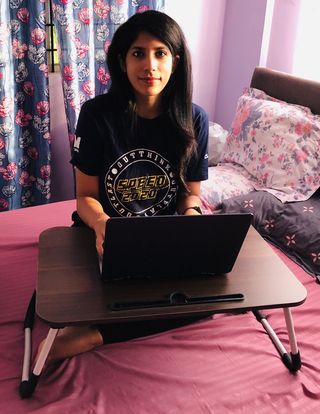Every institute wants to stand out to attract the right students and the best recruiters; to carve a niche for itself and show that its students are able to get the most out of their course, particularly in a disrupted pandemic year. In the fiercely competitive b-school arena, where thousands of schools vie for their share of the pie, flexing is the need of the hour.
Take for example the 33-year-old Xavier Institute of Management, Bhubaneswar (XIMB). It boasts of a variety of programmes and faculty strength and is successful in attracting new-age companies for placements. The institute claims to have had a smooth placement process this year, despite the pandemic, following last year’s 100 per cent placement in reputed companies.
“The teaching and learning environment at XIMB is not just to produce MBA graduates for the job market, but to develop a well-rounded professional ready to take on leadership roles,” said Reverend Paul Fernandes, vice-chancellor, XIMB. “The academic programmes are designed to bridge the gap between academia and industry on the one hand, and theory and practice on the other hand. We have always responded to the emerging order in the world of business and to the technology-led industrial revolution 4.0 by focusing on data analytics and Internet of Things (IoT). New courses have been introduced, such as design thinking of managers.”
Standalone b-schools like these want to be known for their high innovation in terms of teaching methodology and want to facilitate and encourage research. At T.A. Pai Management Institute (TAPMI), Manipal, at the start of the academic year, each faculty member can decide whether their focus would be research, teaching or administration, and design their deliverables accordingly. TAPMI even provides substantial research funds for its faculty.
“More than 50 per cent of our recruiters have been hiring from our institute for more than four years,” said Aditya Mohan Jadhav, professor, in-charge, office of corporate engagement. “This is possible only because they find value in our students. We are able to generate this value through innovative teaching methods based on experiential learning.”
During the pandemic, TAPMI decided that instead of end-term examinations, students can be evaluated based on individual activities or projects. Students can even replace elective courses offered by the school with courses offered by Coursera or Manipal University.
“The pandemic has led to more types of roles offered [by recruiters] as compared with the more traditional profiles, which I think is a positive outcome,” said Sneha N. Kumar, a second-year MBA student. “TAPMI’s forethought about the pandemic helped us prepare well in advance for the new mode of recruitment processes.”
To incorporate the latest methods in pedagogy, Chennai-based Great Lakes Institute of Management has included simulations, experiential learning, role-play and flipped classrooms. The institute recently made changes to the curriculum for its two-year programme and is also currently revising it for its one-year programme. The key focus of the changes is the emphasis on communication skills via workshops.
“We continue to engage with our students through innovative means,” said Suresh Ramanathan, dean and principal. “For instance, we are strengthening problem-solving skills and integrative thinking by a unique integrative case study competition that will run all through the year.”
To overcome limitations set by the pandemic, the institute launched a new module called Term Zero, where it lined up global thought leaders from Stanford, Harvard, Yale and Dartmouth among others, and industry leaders like Indra Nooyi, Sam Pitroda and Kiran Mazumdar-Shaw to interact with the students.
For standalone b-schools such as Mittal School of Business of the Lovely Professional University, the faculty is using innovative pedagogy to ensure rigorous hands-on exposure for its students. Keeping in mind the recent developments and expectations of the industry, MSB has integrated industry certifications with the curriculum. Over 1,000 students have earned industry and massive open online course (MOOC) certifications in the last academic year.
“Our MBA programme aims to build strong research skills among our students through different courses like research methodology, internship and capstone project, which make them capable of systematically investigating business issues,” said Rajesh Verma, professor and dean, MSB.
These b-schools are also not deterred by the IIM Act and the National Education Policy 2020, both of which will redefine the b-school landscape in the country. The acts allow IIMs to grant the MBA degree and a PhD, but restrict private autonomous b-schools from doing the same. “Prior to these acts, the postgraduate diploma in management (PGDM) awarded by IIMs as well as the private autonomous b-schools signalled quality education and ensured parity,” said Jadhav. “The IIM Act does not impact us. But many private autonomous b-schools have approached the government and requested for the same autonomy to grant a degree similar to the IIMs.”
Ramanathan also feels that the IIM Act may not have an impact on private autonomous b-schools. “We are on the same page as the government in its call to institutions of higher learning to become more competitive in a global environment,” he said. “We believe that competition is good, but hope that the government can encourage the growth of high-quality private institutions as well.”
“Government support and more autonomy make a b-school more responsible,” said Fernandes. “The IIMs get large corpus funds from the government. If we had some of the funding they have, we would have witnessed a big transformation.”



